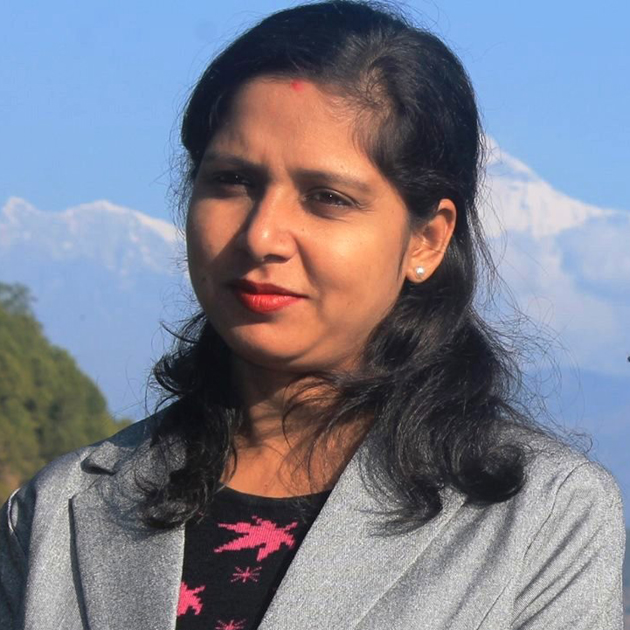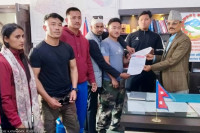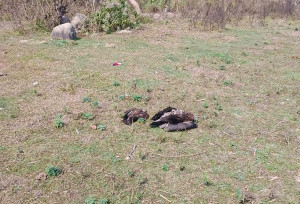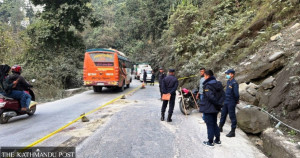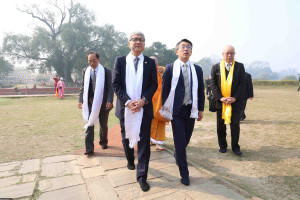Lumbini Province
Province 5 trains community school teachers, students to improve SEE results
The province has introduced reformative education measures following poor performance by students in science and maths in SEE.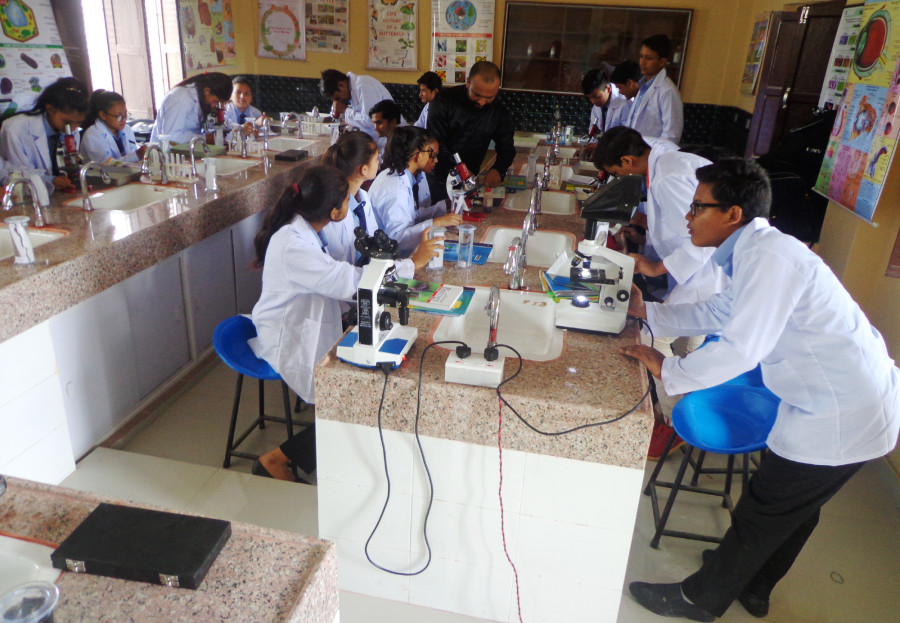
Amrita Anmol
In a bid to improve students’ performance in the Secondary Education Examinations, the Province 5 government has begun training community school teachers and running special classes for students.
The programme, launched by the Ministry of Social Development in the province, aims to improve students’ performance in subjects like mathematics and science.
According to the ministry’s statistics, of the 75,834 students who appeared in the SEE from the province last year, 43,878 students secured D and E grades in mathematics while 25,494 students secured similar grades in science. The performance of community school students was poorer compared to their private school counterparts, with around 70 percent of the students scoring below D grade, which is poorer than the SEE results of 2016.
Social Development Minister Sudarshan Baral said that the provincial government came up with the programme to improve students’ grades. He believes the programme will open opportunities for students to pursue higher studies, including technical education, engineering and medical sciences.
“We have begun the reform programme because if this trend continues, we will not have enough students and the targeted students will not get an opportunity to pursue technical education,” said Baral.
The reformative move comes following a study conducted by the ministry following poor SEE results last year. The study had found that students’ learning progress was decreasing due to weak teaching methods, insufficient teaching time and a lack of practical assignments for subjects like science and maths.
A committee has been formed under Baral to monitor and assess the improvement of SEE results. The committee also includes the secretary at the ministry, the director of the Education and Social Development, Education Training Centre, the head of the Higher Education Division and the head of the Educational Planning and Research Division.
Results Improvement Monitoring Assessment Committees have also been formed at the district level under the chiefs of the concerned District Coordination Committee.
According to Tika Ram Aryal, undersecretary at the Educational Development and Research Division, the provincial government has allocated Rs 50 million for the programme, with each school receiving Rs 20,000 to Rs54,000 depending on the number of students.
“This year, we will operate special classes targeting grade 10 students and introduce reformative teaching methods for teachers,” said Thaneshwor Gyawali, undersecretary at the Educational Development and Research Division. “We will gradually introduce these measures in lower classes.”
This, according to Gyawali, will remove the fear and generate confidence among the students regarding subjects like mathematics and science.
This year, the province will run special classes in 742 secondary schools for science and 888 secondary schools for mathematics. The ministry has selected those schools with over 20 students in grade 10 who performed poorly in last year’s SEE.
A 90-minute class will be run for 52 days for each subject by the respective teachers. If there aren’t any specific subject-related teachers, the province will seek volunteers to teach the respective subjects.
“All the teachers, permanent and volunteers, have been trained by experts,” said Gyawali. “The teachers have been trained to incorporate practical and experiment-based teaching methods while conducting classes.”
The programme is also aimed at discouraging students from taking extra tuition and coaching classes. As per the government data, over 90 percent SEE students opt for private tuition and coaching classes to improve their grades.
Under the new teaching method, the students will be taught in a practical manner as opposed to the earlier theory-oriented classes.
Nepal Mathematics Association Chairman Chetraj Bhatta said that the quality of teaching and learning methods for subjects like science and maths was declining as there were no practical and experiment-based teaching methods. “Students must not only be taught to parrot the formulae so as to pass the exams,” said Bhatta. “The results will see improvements only when students are taught to solve the problems in a practical manner from the primary level.”
(Madhab Aryal contributed to reporting.)




 8.22°C Kathmandu
8.22°C Kathmandu